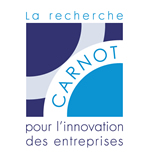A start-up launches helium exploration and production in Europe
Supporting Innovation
Helium is a highly volatile gas that easily passes through geological formations to reach the atmosphere. A start-up called 45-8 Energy is deploying a new method of exploration that involves measuring gas flow over time with specially-designed sensors. It came up with the idea of tracking surface gas as a means of detecting the deep, naturally-occurring reservoirs where the helium is trapped. To speed up exploration, it is necessary not only to identify the gas but to characterise fluxes (i.e., concentration, changes over time and in accordance with ambient conditions), and have this data in real time to be able to either approve or reject the potential viability of a site. For this, a strong and reliable sensor, tried and tested under real conditions is absolutely essential.
Because the company is taking up a major industrial sovereignty challenge by seeking out native helium that can be made rapidly available throughout Europe and with a greatly-reduced carbon footprint, this is the first sub-surface exploration project to be awarded the GreenTech Verte label by the French Ministry for Ecological Transition.
The client needs
45-8 Energy was set up near Metz in 2017 and its name refers to the latitude and longitude of the area of western Europe to be explored in its search for native helium and hydrogen. Because none of the benchmark sensors available on the market had proved suitable, the company wanted to develop a special sensor of its own. The Carnot Extra&Co consortium was set up to facilitate access to SMEs with R&D expertise in extracting raw materials. Following initial contact with the consortium made during “Geoenergy days” organised in the south-western French city of Pau, 45-8 Energy had a detailed discussion with the chargé d’affaires for the north-east of France. It was impressed by the project director’s grasp of the specific issues involved and was rapidly put in touch with the Carnot ICÉEL GeoRessources lab, which tested the sensor in real field conditions (i.e., temperature, pressure, humidity, gas mixture composition) using its hydrothermal experimental platform.
Partnership
Carnot ICÉEL Institute aims to tackle energy-related and environmental societal challenges and pave the way for more sustainable processing of natural resources. This is the background to its partnership with 45-8 Energy to develop new sensors, particularly for analysing locally-occurring helium and hydrogen. The goal is to obtain 20 remote measurements a day without any human intervention.
A long-term relationship has been established to unpick the “technological locks” on this development. The company has launched new R&D partnerships with the GeoRessources lab (1 PhD and 1 post-doctoral researcher) and other Carnot ICÉEL Institute labs such as LRGP (specialised in reaction and process engineering) who are working on gas separation.
The company has performed an initial study in the Nièvre department following an application for an exclusive research permit for the exploration of helium, carbon dioxide and related gases. 45-8 Energy has been able to leverage the potential of this successful partnership to raise the funds needed to finance its future development.

